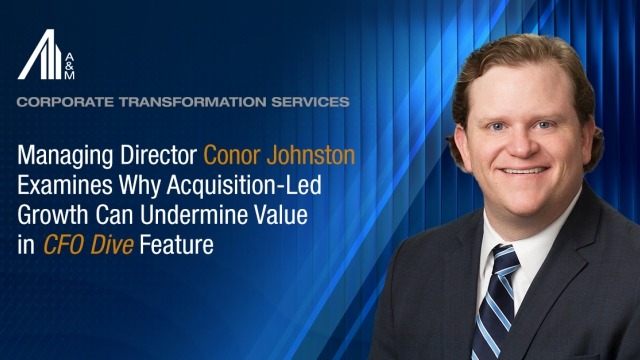Knowledge is Power: How Activists Use Information Arbitrage to Drive Transformation
The soaring number of campaigns by activist investors means management teams and board members have become increasingly familiar with the activist playbook: identify and analyze companies they believe are undervalued, buy a stake and then approach the board, propose changes to boost the stock price and improve shareholder returns.
Despite this growing awareness however, and the fact the activists’ methods appear to be rubbing off on some traditional institutional investors (asset manager Wellington Management has spoken out publicly against Bristol-Myers Squibb’s planned $90bn takeover of Celgene), activist funds have struggled to dispel the view that they are short-termist and opportunistic.
But the activists’ most powerful tool is having more insight than the board into company performance and prospects over various timeframes. “Before putting their money to work, activist investors do exceptional diligence, often without the company’s knowledge – they talk to customers, ex-employees – they go to great lengths before they decide to make an investment,” says Joe Berardino, leader of Alvarez & Marsal’s Corporate Transformation Services practice. “They’re objective and they do a lot of homework – they should be taken seriously.”
Based on the profound breadth and depth of their research, activists form a mosaic view that frequently is more insightful and superior to that of most investors. This diligence and consequent information arbitrage give activists the ability to ask pertinent questions about performance, whereby grabbing the attention of the CEO, the board and other shareholders. It can be the first step to a board seat and the ability to influence decision-making.
If an activist knows more than the board, it might not necessarily mean there has been a failure of governance or that the management team has deliberately hidden information. A well-meaning CEO may put a more positive spin on the issues causing performance to stall or decline until he or she has a solution. “The activist fund may also have devoted more time than board members have to investigating the company because it is putting investors’ money at risk,” adds Mr. Berardino.
There is a growing recognition that engaging with an activist and taking their questions seriously can help to change a company’s strategy and governance for the better. The number of U.S. companies that settled rather than fought activists’ requests for board seats rose 19 percent to 142 last year, according to research by Activist Insight and the law firm Schulte Roth & Zabel shows.
However, gaining a board seat is not the activist’s definition of success. In situations where they are seeking deep-seated organizational change, some work with management teams for years behind the scenes before they gain a place on the board, and once there, they continue to push for the transformation they believe is possible.
“Just because they’re on the board, doesn’t mean that they relax. They’ve got the same motivation and they’re closer,” says Mr. Berardino. “They only make their return when the value of the company increases substantially.”
When Alvarez & Marsal works with companies that have received an activist approach, or with those that may be vulnerable after a drop in their share price, our first task is to switch the information advantage back to the management team and the board. Working for the CEO, we analyze all the available information through the activist’s lens, assessing key measures such as return on invested capital, as well as form an independent view of how the company can transform its operations and capital position to increase the share price and maximize returns to shareholders.
“Given the scale of disruption out there, it’s very hard for an existing management team and board to turn on a dime and make the necessary changes,” says Mr. Berardino. “We work together to form a view that the management will execute. It can be rough going, but often we’re able to get real results.”
Stay informed about the key issues driving companies to seek meaningful, lasting change in From the Inside Out, our corporate transformation newsletter.






